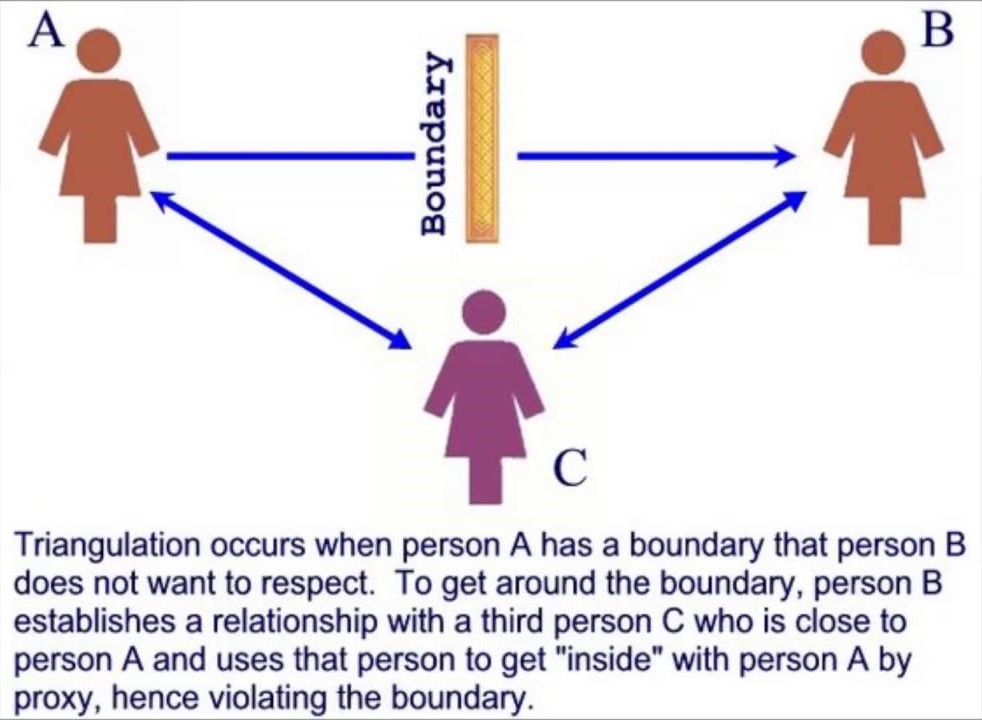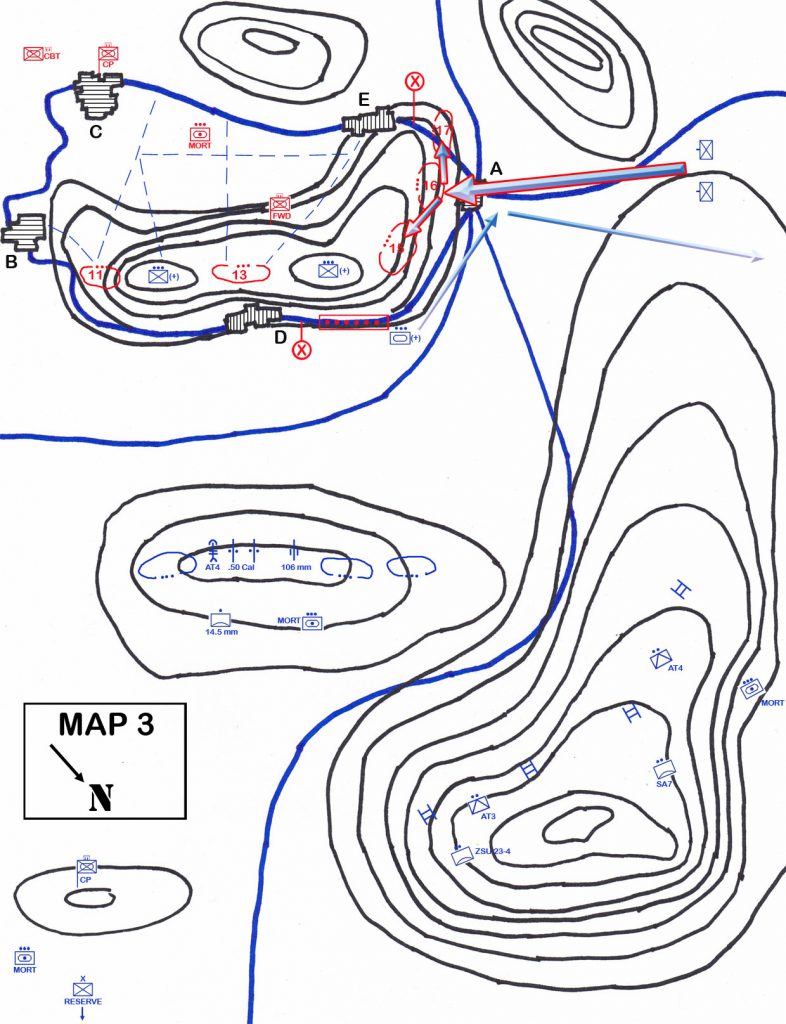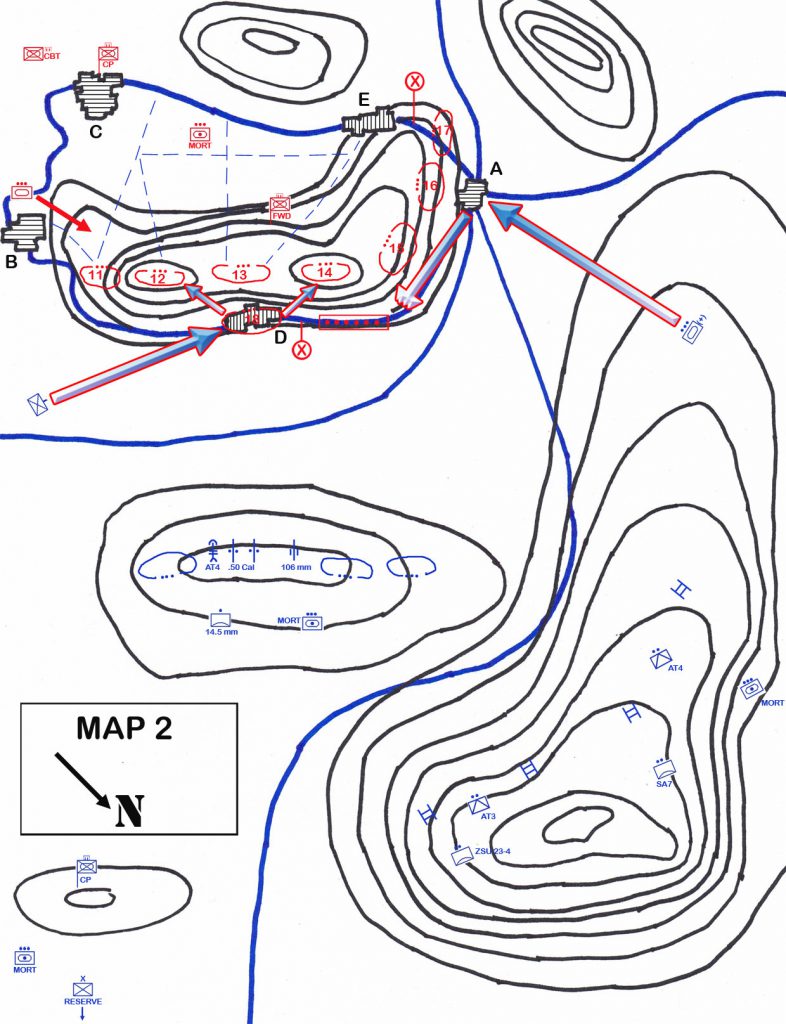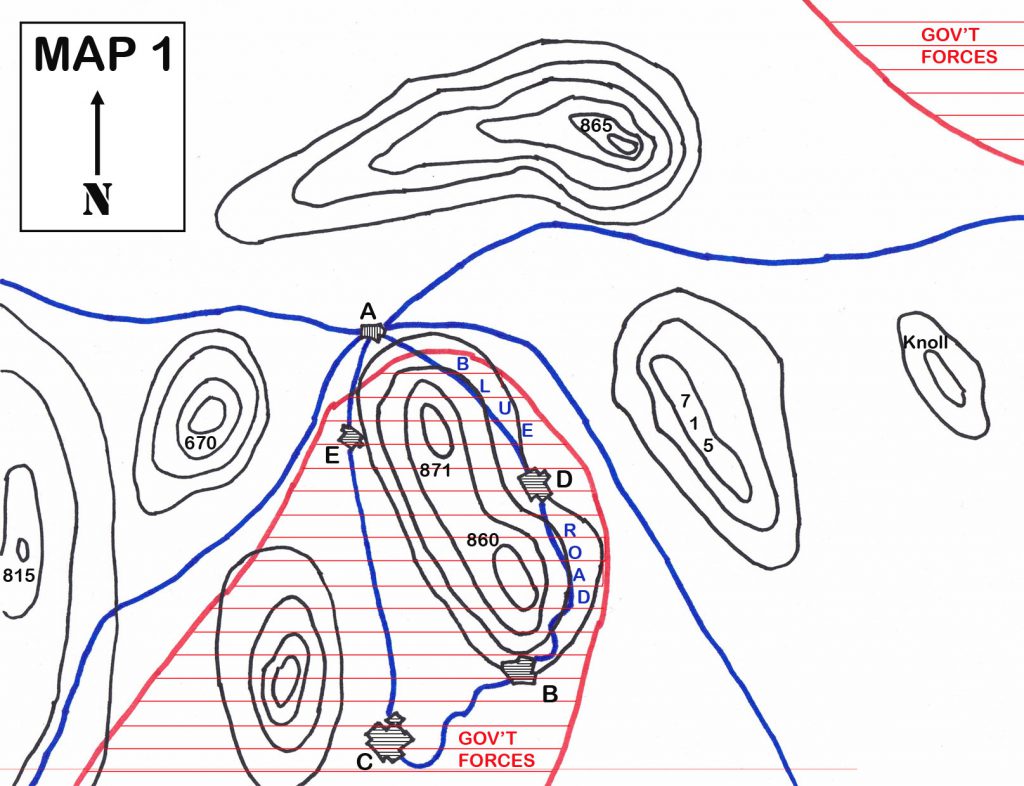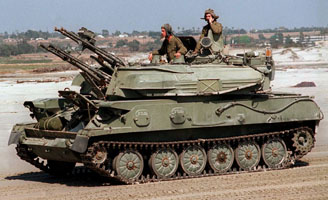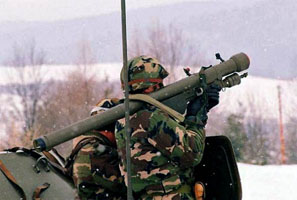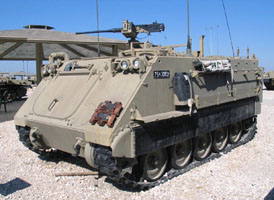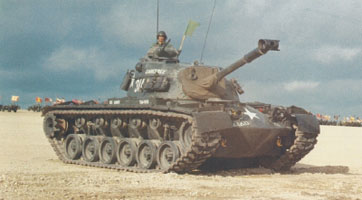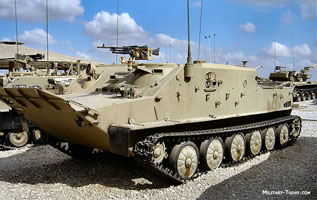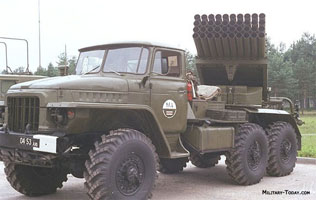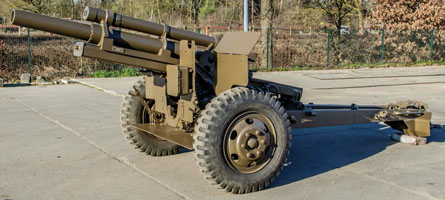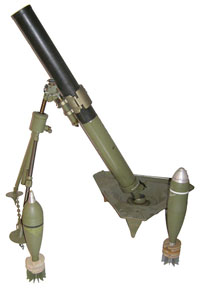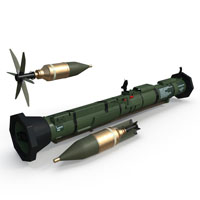July 2024
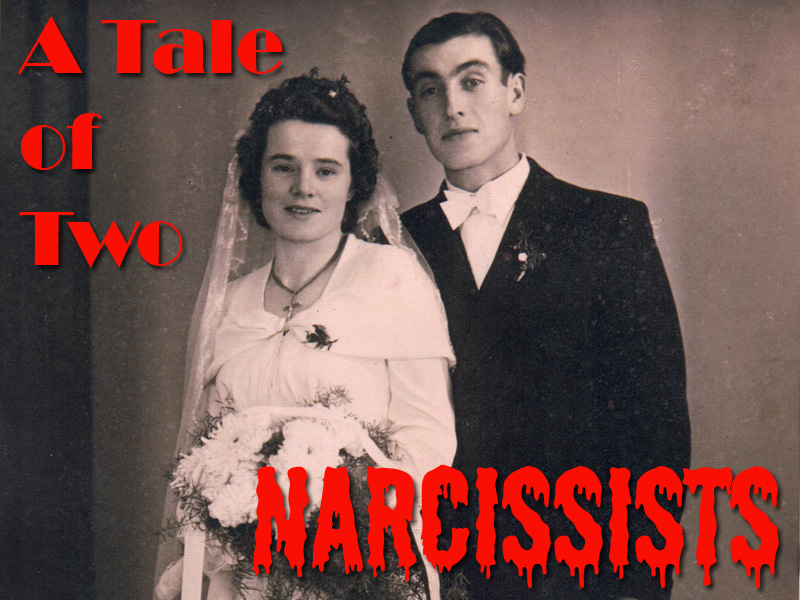
When my father and my mother have forsaken me, then the Lord takes me in
Proverbs 27:10
Introduction – Hatred & Shame
Looking at a picture of my deceased mother and father, I feel only hatred and shame. Hatred for who they were and what they did to me. Shame because modern culture and religion require loving your parents, no matter the monsters they were or are. I disliked both my parents from my earliest recollections as a child. This caused a lot of confusion. Wasn’t I supposed to love my parents? My friends seemed to love their parents. Was there something wrong with me for disliking mine? I didn’t even ask anyone for fear of being declared abnormal or evil. I struggled with that question for over 50 years until I finally discovered the answer.
I learned much later in life that this revulsion is a natural, intuitive reaction to being in the presence of a narcissist or psychopath. Your mind senses at the core level that something is wrong, but then cultural and familial programming quickly kick in to override it. This feeling about my father was easier to reconcile, because he was overtly cruel and abusive. My mother was covert, pretending to be kind and sacrificial, so it was both harder to detect and harder to reconcile afterwards.
The Two Types
Children, even after becoming adults, assume their parents possess wisdom, experience and a benevolent nature. Sadly, that is not always the case. A narcissist parent is neither benevolent nor wise. My father was a grandiose narcissist, my mother a covert narcissist. The definitions are below, from the Mayo Clinic and Frontiers in Psychology.
Narcissism is a personality disorder in which people have an inflated sense of their own importance, a deep need for excessive attention and admiration, troubled relationships, and a lack of empathy for others. (mayoclinic.org)
Grandiose narcissism is characterized by high self-esteem, interpersonal dominance and a tendency to overestimate one’s capabilities. (frontiersin.org)
Covert narcissism presents defensive, avoidant and hypersensitive attitude in interpersonal relations. (frontiersin.org)
These clinical words belie the cruelty and destruction wreaked by people with this disorder. Although I am just a lay person, I can argue that I have far more hours of experience with narcissists of both these types than most clinical psychologists. I spent 33 years with a grandiose narcissist (my father) and 57 years with a covert narcissist (my mother). On the receiving end, a grandiose narcissist will hurt you and then call you a pathetic weakling if you object. A covert narcissist will hurt you, then act like it was all your fault, then call you selfish and ungrateful for even mentioning it, and then slander you to others to cut off any support you might receive from them.
Both types will hurt and use you, not caring one bit about doing so, even if you are their child. They possess zero empathy. For my grandiose narcissist father, I was an unwanted inconvenience. He wanted nothing to do with me and made that very clear from day one. For my covert narcissist mother, I was a manipulative tool. My sole function on this earth was to make her look good and validate her victimhood.
Differences
It was clear that my father, with all his grandiosity and attention hogging, was a narcissist. However, I did not discover that my mother was also one until decades later. At first, I was perplexed. How could two narcissists be married to each other for almost 50 years? It seemed impossible. As I learned more about narcissism and its different manifestations, it began to make sense. They were almost tailor made for each other. My father, the grandiose one, was able to dominate my mother, on the surface at least, and use her as what appeared to be a faithful and loyal emotional punching bag to make himself feel superior while she worked at home to provide for his physical needs. Conversely, my mother as a covert narcissist, was able to play the poor, unappreciated victim role opposite my mean and brutish father. In fact, it was a perfect cover for her. She received tons of admiration and sympathy, while nobody ever suspected she was a narcissist herself until after my father died and her camouflage disappeared.
Which is Worse?
If I had to choose, I would prefer the grandiose narcissist over the covert. At least the grandiose can be fun and entertaining once you reach adulthood, if you let them be the center of attention. I had no problems with my father after reaching adulthood. Every day is a party with them as the special guest star. They often even buy the drinks. Just do not ever marry one, go into business with one, or have one as a parent. The covert narcissist, however, is perpetually moody, negative and nasty. Nothing is ever good enough. Joy must be squashed everywhere. The only thing permitted is for others to weep and commiserate over their poor victimhood. Life is just one big downer with them orchestrating the depression. My relationship with my mother grew steadily worse after adulthood.
Robbed
Psychologist Dr. Ramani Durvasula, who specializes in narcissists and psychopaths, stated, “If you had a narcissistic parent — number one — you were robbed. Remember: You. Were. Robbed.”
If you had a narcissistic parent — number one — you were robbed. Remember: You. Were. Robbed.
Dr. Ramani Dursuvala
I was robbed twice. I had two narcissist parents. For most of my life, I didn’t realize anything was wrong. I just had that discomfiting feeling that I later learned was my gut, my intuition, telling me something wasn’t right. To those persons never having experienced the cruelty and abuse of a narcissist, this may seem like a bitter rant. Some will even side with the narcissist, stating that there must have been a reason for them to act this way and that I, the victim, somehow share the blame. Or they will say something like, “You just need to forgive them.” I’ve heard it all before. The former is cruel, the latter is ignorantly trite. They only perpetuate the cycle of abuse begun by the narcissist. If you have nothing comforting to say to a victim of narcissistic cruelty, then please say nothing at all.
Narcissist Mother
Having a narcissist mother is to be condemned and vilified three times. Once for the abuse heaped upon you by the one person who should have loved you most, again by the flying monkeys she has turned against you, and finally by society condemning you for hating your abuser because she holds the title “mother.”
She would preface almost every conversation with me, with the preamble “Listen …” and follow up with some task I was to do for her or how I made her feel bad in some way. I was responsible for her feelings, but she couldn’t care less about mine. She swung wildly between victim and oppressor. “I’m your mother!” was also a common statement. Intergenerational bullying to place me in an inferior role.
My mother regularly browbeat me as an adult for not calling or seeing her every day, stating that she was worried about me. This same mother regularly left me alone with a male child molester when I was only 4 years old, never heeding my pleas not to bring me to him. In fact, she would beat me when I tried to tell her what he was doing. She preferred that I suffer both his abuse and her beatings rather than confront the reality that she had made a mistake as a mother or even be inconvenienced by not having someone to watch me while she went out partying with my father.
Always the Victim
My mother honed her ability to play the victim to a fine edge during the decades of juxtaposition to my grandiosely selfish and toxic father. She very adeptly masked her own considerable toxicity for decades, using the victimhood afforded by her abusive husband, my grandiose narcissist father. She was the dutiful wife. The hard-working homemaker. The model mother. She did all these noble things despite the emotional, physical and financial abuse heaped upon her by her husband. The fact that my father did indeed heap all these upon her only made it more believable. However, she was exactly where she wanted to be doing exactly what she wanted to do. The future would bear this out.
When her husband died, she suddenly had to face the world without her status as a victim. The abuser was gone, so she was free to live her life now. Right? Wrong. She immediately sought out a new “abuser” to she could continue to receive attention and validation as a victim. She found it at first in my girlfriend’s daughter, who was only 13-years-old at the time, but quite a handful nonetheless. To be fair, the girl did cause a lot of problems, but my mother only doubled down and made things worse. There was no grandmotherly wisdom or kindness to be found.
Within two years, her narcissistic episodes became so bad that we had to rethink our original plans of having her live with us after my father’s death. When she moved out of our joint home after I bought her a new home, I became the “bad guy” and she began slandering me to others saying I threw her out of her home.
Beating for Getting Lost at the Store
Around age 6, I got lost at a department store. I went to one of the cashiers and told her I was lost. She called my mother over the store public address system and and my mother came to get me, a smile on her face. She radiantly beamed and the cashier and thanked her, then took me by the hand and led me out of the store. I felt relieved and happy, until she led me around the corner, behind the building and proceeded to beat me. Not a word was spoken, just the beating. I didn’t even know it was coming until the first blow landed on the back of my head. What was my crime? I had embarrassed her and made her look bad. Beatings from both her and my father were never associated with discipline, only with vengeance or irritation.
Manipulating Her Child
My mother never got her driver’s license. I do not know the dynamic surrounding that. Perhaps it was my father trying to control her and keep her from checking up on him when he was out cheating and drinking. Perhaps it was her playing the victim again. Perhaps both. When I was 5 or 6 years old, my mother manipulated me into promising to drive her anywhere she wanted, at any time, when I got my driver’s license. I was a child eager to please my difficult mother, and would have agreed to anything.
She would still throw that in my face past age 50, when she wanted to be taken somewhere. “You promised me that you would drive me anywhere when you got your driver’s license.” Forcing a person to honor a contract that was unknowingly forced on them as a small child is insane and manipulative. I would have been happy to drive her where she wanted to go had she just asked. Throwing in that guilt clause however, just made me resent her even more. This was just one example of many ways in which she tried to keep me indebted and tied to her, even as an adult.
Covert Slander Campaign
Over the years, some of my friends, family and acquaintances distanced themselves from me and eventually cut me off. There were never any confrontations, they just stopped responding to my calls, texts or emails. It wasn’t until many years later than I realized the common thread. My mother knew all of them. Some of them, she even met through me. One that comes to mind was a fellow soldier with whom I served in Germany, later in the USA, and then again in Iraq. We were pretty close. One day he stopped responding to my emails. No excuses. No reasons. Nothing. Since he and his wife were also friends with my mother, I told her about this, knowing they talked often. She would always respond, “Oh, Carl says he is very busy, but he promises to get back to you.” Carl never got back to me. Although I cannot prove it, I am fairly certain she slandered me to him in such a manner as to make him want to break contact with me. Cutting off victims from any possible supporters is a common narcissist tactic. The closer the victim is to the person, the greater the danger to the narcissist and the more they work to cut off that person from the victim. Spouses are a favorite target.
Here is one example of the slander campaign in action. I had limited my interaction with my mother because of how abusive and nasty she had become. I would visit her, but the moment she started criticizing or being nasty, I would just turn around and leave. One day at work, I started getting calls from various people asking me how I could be so cruel to abandon my mother, since she was a poor cripple who could not fend for herself. These calls came in rapid succession from mutual acquaintances who did everything from expressing concern for my mother to outright condemning me and yelling at me. My daughter-in-law was particularly nasty, calling me every name in the book for hanging up the phone on my poor old mother who had fallen and couldn’t get up. She called me greedy and selfish for refusing to buy my mother the walker she needed to get around. She seemed annoyed that she had to go buy one, since it was my responsibility. This was the first time I had heard anything about my mother falling down, needing a walker, or being a cripple.
I drove immediately to see my mother. She opened the door, standing tall and strong, greeting me with a superior smirk on her face. I saw the walker, still in its original packaging, up against the wall. I called her out on what she had done, but that only resulted in a second wave of even more vicious slander. Eventually my entire family turned their backs on me.
Zero Accountability
My mother had an excuse for everything and took responsibility for nothing. The words “I’m sorry” were not in her vocabulary. She would flee to another room whenever my father beat me. These were not spankings. They were beatings with his fist and back hand slaps across my face. I remember this as early as age three. When I confronted her about it years later, she responded, “That is the way we were raised. A wife didn’t go against her husband.” Aside from that being pure garbage with respect to grown man beating a small child, she had no problem going against him when it suited her. Even in public.
After I became an adult, I confronted my mother about the above referenced instances of leaving me with a child molester. I asked her why she never protected me, or even listened to me. She would claim that she never knew about any of it. When I would reply that I told her dozens of times, she would call me a liar.
It just was not important to her to protect her child, because her child was not important to her. It took me years to realize this is not normal. Most mothers protect their children even at risk to their own lives. To this day, phrases like “nothing is stronger than mother’s love” or “don’t get between a mother and her child” still make me want to vomit. I absolutely hate Mother’s Day. It is nothing but weeks of painful reminders of what I never had, leading up to a day that elevates and glorifies the most wicked and evil woman in my life. No thank you.
Inheritance Games
My mother would play passive-aggressive games with implied actions of rewarding obedience with an inheritance and punishing disloyalty with disinheritance. She would change her will every few years and make back handed references to the new contents. I was the only child, so it all revolved around disinheriting me.
On the final occasion she spoke to me about the will, she made a big deal about having me drive her to the lawyer’s office and wait for her there. When she came out into the waiting room, she handed me a folder with a smug grin on her face, saying, “Tell me what you think of this.” She had given the inheritance directly to my son, but kept me as the executor. I replied, “Looks great Mom, but you need to make my son the executor. I won’t be fulfilling that role anymore.” The grin on her face quickly became rage. I don’t think she expected that. My son became the executor and got the inheritance. That was fine with me. She never got a funeral or even a memorial service. My son and his wife just took the money and gave her a cheap cremation, all the while condemning me as a horrible son.
She frequently stated that she had valuables hidden all over her house in secret places. Gold, silver, jewelry, cash, and antiques. “You better search everything very carefully after I am gone, so that you don’t miss anything.” She never showed anyone any of these supposed secret locations. After she died, nothing of value was found hidden in the house. I had to deal with that too, because my son had abandoned it, for reasons unknow to me. She also alluded to fat bank accounts, but nothing contained over $10,000 after she passed. Perhaps she really had all that money and just gave it to my son outright. I don’t know.
Narcissist Father
While my mother made a mental ledger of everything she did for me as a child and for which I would owe her repayment as an adult, my father took the approach of making it crystal clear from my earliest recollections that I was a huge inconvenience to his life and that he wanted nothing to do with me.
Uncaring Cruelty
When I was very young, I suffered a bad burn on my hand from touching a stove. The pain was very intense. My father drove around for hours with me (and my mother) in the car, refusing to go to the hospital, drug store for ointment or bandages, or even get some ice to ease the pain. He had other, more important, things to do. I spit on and cried into a tissue to get it wet and try to cool off the burn. When I cried too loudly, he yelled at me to shut up, or would slap me in the face if that did not work. When we finally arrive home, he got out of the car looking at me with disgust and spat out, “We’re here you f#$%ing p@#$y. You can stop whining.”
My mother did nothing to help me, speed up his driving around, or even say a word to him. I never forgot it and hated him intensely for years to come. In fact, my mother never came to my aid whenever my father would beat me. My earliest recollection of this was at age 3. He would not spank. He would back hand me across the face and punch me in the back of the head as I ran. If he was too slow or lazy, he would throw things and me, some of them quite hard. All of this for the infraction of having done something to annoy him. Discipline was never the issue. Lessons were never imparted.
Beating for a Joke
When I was 10 years old, we visited some relatives. It was a group of about 15 people. Uncles, aunts and cousins. My father was in the limelight as usual, telling jokes and stories. He had great skill and talent at this. I had been watching him do it for years. I had a good joke that I’d been saving for just such an occasion and I told it during a lull in the conversation. Everyone laughed, including my father. I thought I had won some favor with him by being more like him. I was wrong.
On the drive home, his backhand connected with the side of my face and I flew across the back seat. I cowered on the opposite end of the car, but he pulled over got out, pulled me out of the car and proceeded to beat me properly, all the while yelling a me for my “stupid” joke. My mother, true to her character, did nothing to stop him. She just sat and watched with a blank expression on her face. Unbeknownst to me, I had committed a cardinal crime. I had upstaged my father.
End of the Beatings
When I reached the age of 16, my father stopped beating me. After I joined the Army at age 17, he stopped ridiculing me. I though I had finally gained his approval and that he was now proud of me. I couldn’t have been more wrong. Years later, after he had died, my mother stated, “He treated you better because you grew to be bigger than him and he was afraid of you. He was a coward who would only attack weaker people.” I did not want to believe it, but it was so spot on that I knew it was the truth.
Lack of Accountability
My father’s lack of accountability was different from my mother’s outright denial of things. He embraced some things he did as his right and privilege. Cheating, drinking, beating his child. It was all justified simply because that was what he wanted to do and he felt he had the right to do it. He dismissed anyone who disagreed as “crazy” or “overreacting.” One of his favorite responses to my mother was, “You always have something trivial to complain about.”
Gaslighting Each Other
My parents took great joy in deceiving and conning each other, seeing it as a great victory when they succeeded. My father, the grandiose narcissist, would brag about it to others. My mother, the covert narcissist, would keep quiet about it but gleefully enjoy watching the confusion.
As an example, when my father would go out drinking with his buddies and come home at 3am, he would quietly sneak into the bedroom and set the clock back to 11:30 pm. Then he would sneak out again and loudly re-enter the bedroom, while turning on the lights. My mother would wake up, look at the clock, then roll over and go to sleep again. Afterwards, my father would reset the clock back to the correct time. He took great joy in regaling other men with this story, emphasizing how stupid my mother was for not noticing.
On payday, he made a big production of taking $200 in cash out of his pocket, giving my mother $180 and keeping $20 for himself. After he died, we discovered he made a LOT more than $200.
My mother’s deceptions were of a different sort. Narcissists are often extreme in their handling of money. My mother hoarded every dime, while my father spent lavishly. One deceptive measure she used to enforce her stinginess was to refill the bottle of my father’s favorite and expensive soup seasoning with generic soy sauce. She did so for over a decade without my father noticing, despite the bottle eventually becoming very stained and worn. Ironically, my father would also use this trick, refilling bottles of expensive liquor with cheap rotgut, but this was not to save money. It was so that he could drink the good stuff himself, while making a big deal to guests that they were getting the good stuff. Once again, this was accompanied by lots of bragging about how great the alcohol was and then later how stupid the guests were.
My mother’s stinginess led her to installing a manual timer on the main outlet that connected the furnace. It was hidden deep in the recesses of the closet, behind the furnace itself. It would shut down the power and heat about 30 minutes after she went to bed at 8pm. My father, a night owl, spent months messing with the thermostat and cursing about how cold the house was. When I discovered the ploy and informed him, it led to a spectacular blow up between the two.
My mother would make a big production about cooking while doing very little actual work. She made sure that when my father got home from work, there was a pot cooking on every one of the five burners of the stove. They were all filled with boiling water that she later poured out after my father had bought the charade and she served him some re-heated slop. Nothing was cooking, but she made it look like she had slaved away all day. From my childhood memories, she spent every afternoon sleeping between 3-5 hours. The pots were set to boil 20 minutes before my father arrived home.
They would both gaslight the crap out of each other. “You’re crazy,” was the phrase most often thrown back and forth. Our home was layer upon layer of fiction mixed with ridicule, lies and guilt.
What is Real?
After discovering you were raised by two colossal liars and gaslighters, you spend the rest of your life deconstructing everything they told you or that you learned from them. Is this true? Is that true? Is any of it true? You start second-guessing things you’ve been doing for years, and sometimes you discover those were all lies too. You even question your core values and if they are real. This formed who you are as a person. You don’t get a second chance at childhood.
Commonalities
The following traits and characteristics were common to both my father, the grandiose narcissist, and my mother, the covert narcissist.
Continual Criticism
My mother criticized me at every opportunity. There was never encouragement of any kind. In fact, she would pre-emptively criticize failures that she felt sure I would make before I even undertook any endeavors. As a child, she deemed me too stupid to do well in school. I made National Honor Society. As a teenager, I was too weak and stupid to get accepted to West Point. I was accepted at age 17, made dean’s list there, and graduated. As a parent, she painted me as weak and incompetent. I am by far a better parent than she ever was. She criticized me to try to keep me in a position of inferiority. When I later called her on this toxic behavior after I became an adult, her common response was, “It is a mother’s job to criticize her son.” She wouldn’t even deny it, but rather twisted it as somehow performing a noble duty.
It is a mother’s job to criticize her son.
Anna F.
My father criticized me in areas where he sought to be in the limelight. Foremost among these was sports. Mind you, he never actually displayed a single athletic skill, just talked about how great an athlete he was. When I was seven years old, he would kick a soccer ball as hard as he could into my gut, then laugh at me and call me weak when I would double over and cry in pain. Congratulations Dad, you can kick a soccer ball harder than a 7-year-old. What a man. As I grew into adolescence, I began showing an interest in the military, due to all my father’s war stories. These stories were later determined to be fake, stolen valor tales. He frequently tried to shoot down my desire to be a soldier by telling me I was too weak, too clumsy, too stupid or too cowardly. Ironically, this made me double my efforts, to the point where I was accepted to and graduated West Point. I successfully commanded 155 men and 21 tanks in Iraq, being decorated for it. I mistakenly thought that would gain my father’s respect, but all it did was make him hate me more. I didn’t realize until years later that this was because I had already surpassed him at age 17 on the day I entered the gates of the military academy. Nothing was permitted to eclipse my father’s (mostly fake) magnificence.
Anything They Don’t Know is Irrelevant
My mother claimed to be a mathematical genius. The basis for this was that she knew the multiplication and division tables up to the 12×12 level. She could do it with competence and respectable speed. I never saw any evidence of her grasping complexity of mathematics beyond that. When I was in junior high school, I asked her about algebra and geometry. She stated it was all “made up stuff” and was not important. Anything she did not know how to do was deemed meaningless and irrelevant. Anything she did know how to do was deemed critical to the existence of the human race. Even those things she did know how to do were often more self-promotion than actual skill or talent. Her cooking, for example, was mediocre at best. She had a small handful of signature dishes that were good. She loudly touted these at every opportunity. When I began cooking as an adult, I surpassed her abilities in about year, and I’m not that great.
My father took this to an even higher level. All his expertise was verbal only. My mother used to put him down by claiming, “He can do everything with his mouth only.” She was correct. I saw zero evidence of any of his claimed athletic, military, tradesman or other abilities. Any wisdom he possessed was stolen from other sources, usually books. Any skills he supposedly possessed were never witnessed by anyone. He was so good at spinning tales and self-promoting however, that he enjoyed near celebrity status as a war hero. He told whoppers that grew over time to anyone who would listen, promoting himself along the way and even lecturing to military units and universities. All his wartime stories were fake.
A Roof Over Your Head
Apologists for the narcissist, and there are many, will say things like, “Oh come on now, they put a roof over your head and fed you.” I bought into this excuse most of my life, lumping it into the bucket of they did the best they could. It wasn’t until I started reading and listening to experts on narcissism that I learned how wrong that is. The first inkling was when I heard Dr. Ramani Durvasula say, during a talk, “An orphanage puts a roof over your head and feeds you. Would you equate them with a good parent?” Sometime later I discussed this topic with Dr. David McDermott. I told him that my mother cooked for us every day. He asked, “Did she ever cook something you liked.” I stopped talking and could not think of anything to say. It was beyond just not being able to remember whether she had (she had not). It was as though the question did not even register in my mind. Why would a parent cook something their child likes?
Then came the kicker. He asked me, “Do you ever cook anything your child likes?” Of course. All the time. It hit home to me at that moment how selfish my mother was and how she was not a normal parent. I, raised by narcissists, as a non-nurturing man, with zero training or personal experience … I still cook things for my child that she likes. That was normal. For those of you asking or thinking, What’s the big deal? So she didn’t cook what you liked. I strongly urge you to look at your family of origin for signs of narcissism. I said exactly the same thing for decades
No, my parents did not do the best they could. They didn’t even try. I am also a parent. I know the difference.
Childhood Neglect
I was sunburned frequently as a small child. Often bad, 2nd degree burns with blisters on my body. I never though much of it until I became a parent myself. My daughter has never been sunburned, even a little, because I take care to ensure she has sunscreen on when we go out. It does not take much time or effort to do that, even as a single father. I also make sure she does not spend an excessive amount of time in the sun, checking her often. That made me realize that neither of my parents cared whether I got burned. They only cared about the minor imposition to them.
Preventive medical and dental care was a completely foreign concept to my parents. I had my first medical checkup and physical at age 17 when I joined the Army. Prior to that, my only interaction with a doctor was receiving my immunizations when I reached school age, but I suspect that was mostly because it was required and getting it waived would have been a bigger inconvenience to my mother. My father never concerned himself with me at all, only drinking, watching football, telling fake war stories, and philandering. My mother also used the excuse that they could not afford healthcare, but they could afford vacations in Europe, a recreational vehicle, two cars (for only one driver), and frequent nights out partying and drinking.
The Army also taught me how to properly brush my teeth and introduced me to flossing, something I had never heard of before. Fortunately, I had no medical issues while growing up. Dental was another matter. I had over a dozen fillings and several teeth pulled by age 13. My parents did it on the cheap, waiting until the pain was unbearable for me and then taking me to the most bargain basement chop-shop dentist they could find. Several times they took me across the border to Mexico, where the “dentist” would pull my tooth with pliers. No exaggeration. All the while my, father would belittle me for any expression of pain I made, making it clear that I was weak and defective for even having to visit a dentist. As a single parent, I made sure my daughter received regular dental care, even going so far as to have a pediatric dentist provide it early in her life to make it easier on her.
To be fair, my parents both had false teeth from their lack of caring for their real ones, so the dental negligence was due to ignorance or laziness. My mother often stated, “You don’t need to brush your teeth. Just bite into an apple.” Said the toothless woman.
Mystery Scars
I do not recall ever having been taken to the hospital or emergency room because of physical abuse, but I do have scars on my body that I do not remember getting. My mother would just dismiss when I asked about them. Tragically, I thought this sort of thing was normal until my early adult years when I learned otherwise from friends and soldiers with whom I served. Most of their fathers did not backhand them in the face or punch the backs of their heads. The few who did had horrific drug addicts or gang members as fathers. Even more shocking to me, I saw and learned of many instances where a mother would physically place herself between an abusive man and her child, even if it placed her in grave danger. My mother would not even inconvenience herself to say anything to my father when he beat me, much less place herself between me and him.
No Empathy
Years ago, shortly before I cut my mother out of my life forever, I asked her, “Do you care that your son is hurting?”
She replied, “Why should I? It’s not my fault.”
I responded, “I didn’t say anything was your fault. I just asked you if you cared.”
She said nothing, just got an annoyed look on her face, shrugged and shook her head.
It is not so much that they are cruel or sadistic, but rather that they are self-centered, uncaring and lacking empathy. To their victims however, this is often indistinguishable. The resulting pain for the victims is the same. I am far from a perfect parent, but I guarantee you when my child looks hurt or sad, I sit down with her, ask her what is wrong, and give her some empathy. Even if I cannot solve it, or it is her own fault she is in the situation, at least she knows I care. It is the right thing to do.
Slander as a Sport
Both my parents routinely gossiped about, criticized, condemned and ridiculed others. It was usually accompanied by peals of laughter. This wasn’t the focused slander campaign my mother implemented to marginalize and ostracize her victims, but she also took part in sport slander. Her and my father would talk down, ridicule, and malign people daily as a form of entertainment, laughing loudly all the time. It was always behind people’s backs. They would also turn around and slander the very people to whom they had been slandering others that very same day. This was the only “bond” my parents shared. My father’s entire family was like this, as was about half of my mother’s.
The Aging Narcissist
They will not mellow with age. If you think the narcissist is bad at age 40 or 50, just wait until you see them at age 80. You will be hard pressed to find a more bitter, nasty, cruel, manipulative, and evil person. If you are wondering how an 80-year-old can still harm you, you would be surprised. Pray you never find out. Even my formerly jovial father became nasty towards others as he entered his 60s. He died at age 68, so I never saw anything past that. My mother lived to age 94 and became one of the most deceitful, manipulative, nasty, bitter, passive-aggressive and unloving people I have every known.
Complex PTSD
I recently opened a box of things I had packed up from my mother’s house after her death. Her “smell” hit me in the face when I opened it, literally making me want to vomit. An old, familiar mix of cigarette smoke and I-don’t-know-what that I had experienced much of my life in conjunction with all the gaslighting, mental and physical abuse. I recently discovered that my physical reaction was due to something called Complex PTSD. The smell had triggered mental memories of abuse, which resulted in physical nausea.
Honor Your Father and Mother
How do you honor a narcissistic parent? America’s entitled “Me First” culture makes it relatively easy to dismiss one’s parents, even though some of the most entitled and self-centered people will be the first to guilt you, because “It’s your mother!” It is far more difficult to manage in Eastern societies where people are culturally required to endure abusive garbage from family members until the day they or the abuser die. Even though it is easier in America, I still wanted to obey the bible commandment to honor your father and mother, but how?
More than one pastor or religious leader has told me that, since my parents did not obey the commands of the bible, I am not required to show them any more honor or respect than I would a non-related atheist. That made sense to me, however I still felt something was missing. I happened upon this approach one day and adopted it as my own.
We honor toxic or evil parents by giving them clear boundaries and consequences if they are not remorseful, repentant, or willing to work towards ending their abusive ways. We honor them by stopping the cycle, not allowing their abusive legacy to continue in how we treat our own children.
My responsibility is towards my children, not my parents.
Call Out, or Cut Off?
Do not bother trying to call out narcissists on their falsehoods, deceit, errors or hypocrisy. It will not do any good. They will never admit what they are doing is wrong, no matter how much evidence and proof you gather. On the contrary, they will only double-down, get angry and probably slander you to whomever will listen. There is no use trying to engage them. All you can do is cut them completely out of your life … or continue to suffer. Those are the only two real choices you have. Taking half-measures will not end your suffering.
Guilt & Shame
I hated my parents as a child and felt guilty for it, because I did not understand what was causing it. I mistakenly believed it stemmed from something defective or evil within me, a belief my parents did their best to foster. Now that I understand it, I still struggle with the hatred, but I understand that the only real choice I have, ever had, is whether to dwell on it or not. I did not choose them as parents and I did nothing to deserve their treatment of me. I would never have been able to change them, or even make them recognize or appreciate me. Those are the cards I was dealt, fair or not, right or wrong. So today I work every day on just erasing them from my memory. The success is incremental, but noticeable. Ultimately, that is the greatest vengeance. Erasing that person as though they had never even existed.
Of all the narcissistic relationships, the parental one is the most lethal because of the life-long damage it causes. The child did not choose the relationship, they were completely unempowered to address it.
Dr. Ramani Durvasula
Comfort in their Passing
There is a lot of comfort in knowing that the two people who hurt you the most in life, the ones who seriously damaged you before you even had the ability to think critically, are both dead. I feel that comfort every day. This may seem callous, even horrific, to some of you, but those of you with narcissistic parents will understand. I discovered my mother had died over a year after the fact. I remember feeling nothing at all. I only said to myself, “Now you can’t hurt me anymore.” At first, I thought I was broken inside because I felt no grief at all (and I never have since). I sought out the counsel of a psychology professional, who told me, “Don’t worry. What you are experiencing is normal. You did all your grieving while she was still alive.” Research I have done since then confirms that what I feel is normal.
Regret?
Occasionally someone will ask me, “Do you think when she was on her deathbed, she regretted what she had done to you?” I firmly believe the answer to that is no. Narcissists do not think that way. I believe all she felt was anger that I had not given her the praise, deference, and obedience to which she believed she was entitled. I believe she went to her grave hating me, nothing more. The only thing I know for sure is that she disinherited me, something I fully expected. She gave everything to my son, who she also turned against me with her slander campaign and possibly also with a substantial infusion of cash into his life.
Final Thoughts
Narcissists are not insane. They have a personality disorder, not a mental disorder. They are fully aware of what they do and actively choose to do it. Thus, they are responsible for their actions. For every excuse someone might make as to why a narcissist does what they do, there are many examples of people with the same back story, same trauma, same abuse, same whatever … who actively choose to be good and kind people. Narcissists have no excuse, nor should they be given one
What I wrote here is but a fraction of what transpired. The entire story would fill a book, perhaps two. It covers the main points though. Enough to provide an idea of what life was like with two narcissist parents. I’m sure there were worse, but this one was mine.
